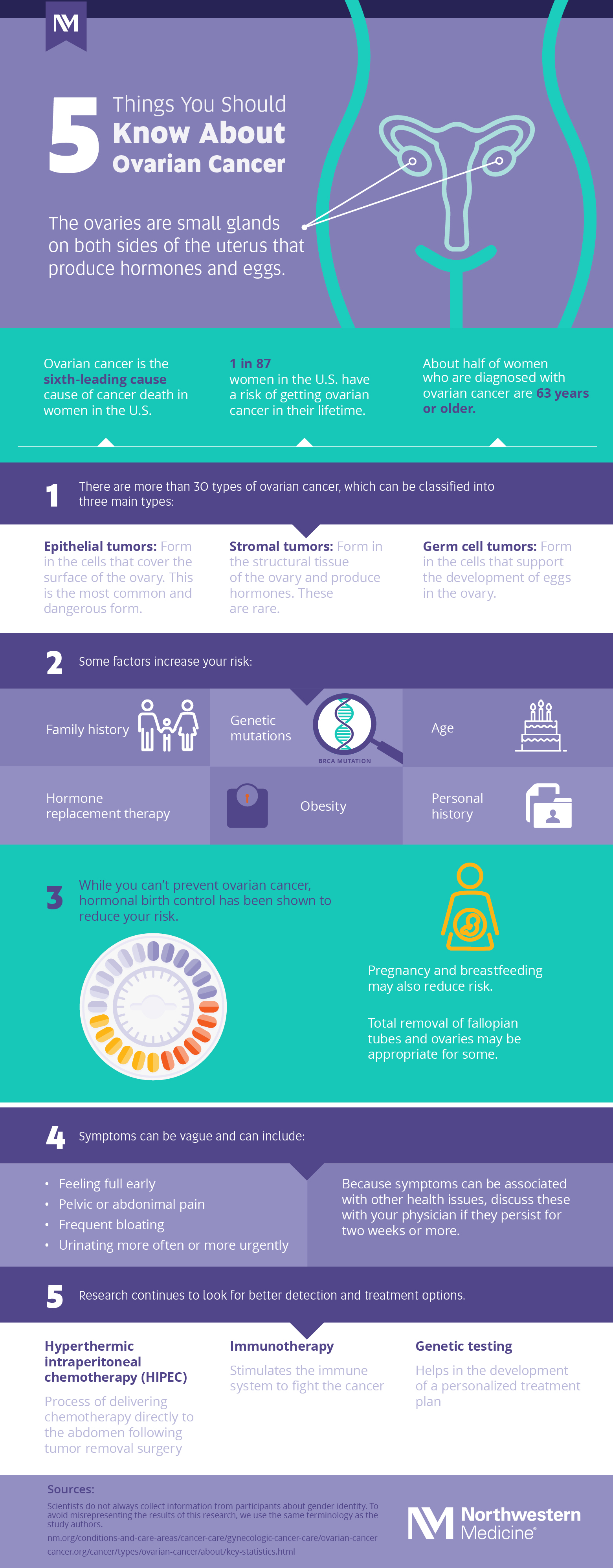Ovarian Cancer: 5 Things to Know (Infographic)
Risk Factors and Prevention
Updated February 2024
Ovarian cancer occurs when cancer develops in the ovaries, the female reproductive organs that are responsible for the production of eggs and hormones. Because of its vague symptoms and location, ovarian cancer can be difficult to detect early, when it is easiest to treat. There are some factors that can increase your risk, including family history, age and obesity. While ovarian cysts may turn into ovarian cancer, they are often benign. However, data on other links to ovarian cancer, such as polycystic ovary syndrome (PCOS), remains limited and requires additional research.
Fortunately, research continues to seek ways to detect and treat ovarian cancer. Advances in genetic testing are making it easier to identify those who are at risk and to provide personalized treatment options.
Here, Northwestern Medicine Gynecologic Oncologist Emma L. Barber, MD, shares what you need to know about ovarian cancer, including several factors that increase your risk and a few that can reduce it.







